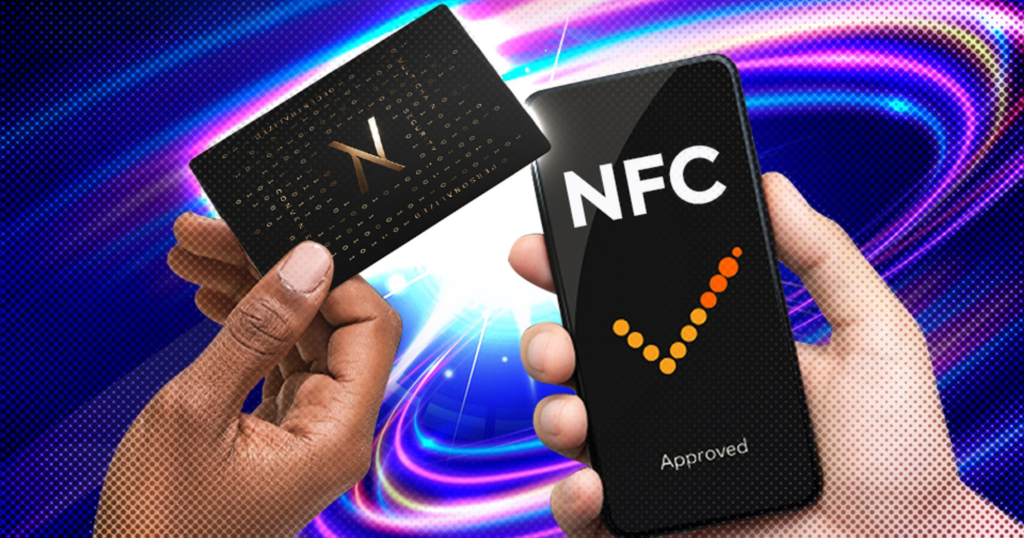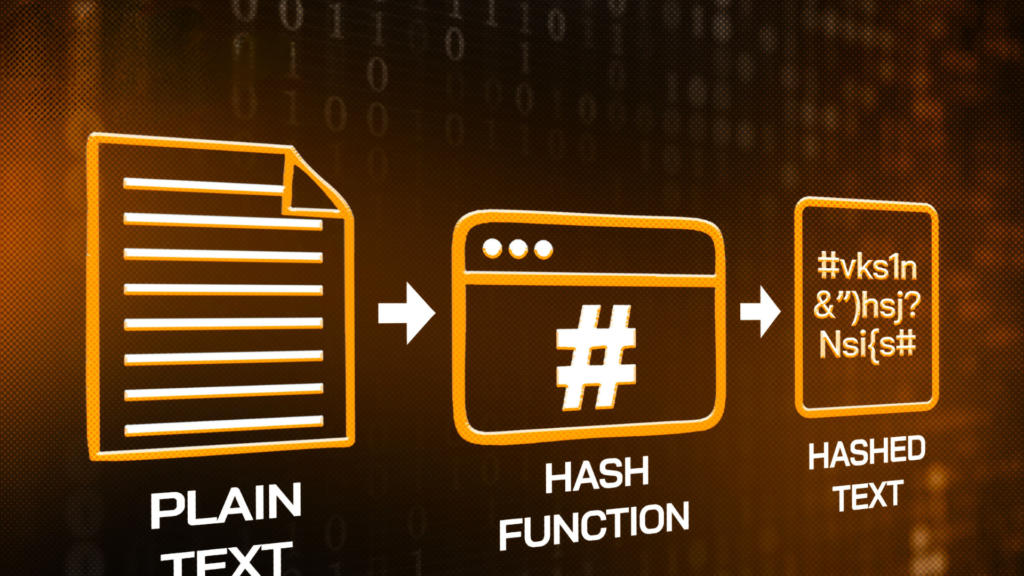Explore what NFC technology is, its applications in crypto, and discover how NFC combines with blockchain to provide secure, safe, and convenient payment solutions.

What is NFC?
NFC (Near Field Communication) is a short-range wireless connectivity technology, typically within a few centimeters. This technology allows devices to exchange data when they are brought close together. NFC operates based on the principle of magnetic field induction, enabling fast and secure information transmission.
NFC was developed from RFID (Radio Frequency Identification) technology and has grown rapidly since the early 2000s. With the popularity of smartphones, NFC has become an integral part of everyday life

How NFC Works
NFC uses magnetic field induction to transmit data between two devices. When two NFC-enabled devices are brought close together, they create an electromagnetic field and exchange data. Users simply need to tap the two NFC-enabled devices together to perform tasks such as sharing data or making payments.
NFC operates at data transfer speeds like 106, 212, or 424 kbit/second and has a maximum operating range of about 10 cm. NFC technical standards include ISO/IEC 18092 and ECMA-340, which ensure compatibility and performance of NFC-enabled devices.
Main Operating Modes:
- Peer-to-Peer: Allows two devices to exchange data directly with each other. For example, sharing pictures or contacts between two phones.
- Read/Write: One device (e.g., a smartphone) can read or write data to an NFC tag. For example, reading information from a payment card.
- Card Emulation: An NFC device can act like a smart card. For example, using a phone as a payment card in contactless transactions.

Applications of NFC in Daily Life
Mobile Payments
NFC is widely used in contactless payment systems. Users can simply tap their phone or smart card on a payment terminal to complete transactions quickly and securely.
- Digital wallets and contactless payments: Services like Apple Pay, Google Pay, and Samsung Pay.
- Advantages of NFC payments: Speed, convenience, and high security.
Fast Data Transfer
NFC allows users to transfer data quickly by tapping two devices together.
- Sharing contact information: NFC enables quick sharing of contact information between smartphones.
- Sharing photos, videos, and files: Lightly tap two NFC-enabled devices to transfer data without needing a network connection.

Management and Tracking
NFC is applied in smart management and tracking:
- Home automation: Use NFC to connect and control smart home devices such as lights, door locks, and security systems.
- Quick setup: NFC makes it easy to configure and connect IoT devices to Wi-Fi networks.
- Electronic tickets and smart cards: NFC is used in electronic tickets and public transportation cards like the Oyster card in London and EZ-Link in Singapore, making travel easier and more convenient. This also reduces waiting times and minimizes the use of cash.
Applications of NFC in Crypto
Some notable applications when integrating NFC in crypto:
- NFC-integrated crypto wallets for convenient transactions: Crypto wallets like Tangem or the hybrid wallet Zen Card integrate NFC technology to enhance security and convenience. Users can tap the Zen card on their mobile phone to perform transactions quickly and securely.
- Identity verification and security: NFC can be used for identity verification in blockchain systems, ensuring security and transparency. Civic is a blockchain project that uses NFC technology to verify user identities. The Civic card contains the user’s identification information and can be scanned with an NFC-enabled phone to confirm identity in transactions or access blockchain services.
- Contactless cryptocurrency payments: Samsung Pay has expanded support for Bitcoin, Ethereum, and Bitcoin Cash through a partnership with BitPay. Users can use a BitPay card connected to Samsung Pay to make contactless transactions at Samsung Pay acceptance points. This allows users to pay with cryptocurrency quickly and safely.
Learn more: What is Zen Card? Ninety Eight’s comprehensive storage solution

Benefits of NFC in Crypto
High Security
One of the biggest benefits of using NFC in crypto is enhanced security. NFC operates over very short distances (about 4 cm), minimizing the risk of remote attacks. This makes NFC transactions more secure than other contactless methods.
Combined with blockchain technology, where every transaction is recorded transparently and immutably, users can be assured of the safety of their digital assets.
Convenience and Transaction Speed
NFC offers great convenience for users in performing daily crypto transactions. Simply tapping devices together to execute transactions saves time and simplifies the payment process. This is especially useful in environments that require fast transactions, such as stores, restaurants, or events.
Strong Authentication Capability
NFC provides strong authentication capabilities, helping to minimize the risk of fraud and counterfeiting. NFC-enabled devices can quickly and accurately verify user identities, combined with decentralized authentication systems on the blockchain to ensure integrity and security.
Digital Asset Management
NFC makes it easy to manage digital assets. Hybrid wallets like Zen Card use NFC to connect wirelessly to smartphones, allowing users to manage and trade cryptocurrencies easily and securely. Eliminating the need for connection cables increases convenience and security for users.
Read more: Zen Card: The Optimal “Hybrid” of Hot and Cold Wallets.
Compatibility and Scalability
NFC is highly compatible with many existing devices and systems. This makes it easy to integrate NFC into crypto applications and expand its scope of use. Devices from smartphones to IoT (Internet of Things) devices can support NFC, creating a diverse and rich ecosystem.

